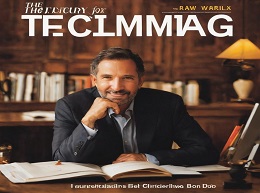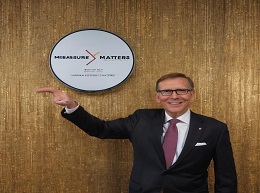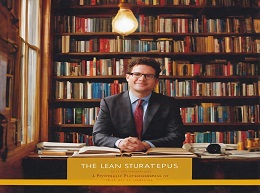Zero to One

In the realm of entrepreneurship and innovation, Peter Thiel's "Zero to One" stands out as a beacon of unconventional wisdom. This thought-provoking book challenges prevailing notions and provides a roadmap for entrepreneurs to go beyond competition, fostering innovation that leads from zero to one. Let's embark on a journey through the key insights of "Zero to One" and explore how it can transform the way we approach startups and business.
The Zero to One Mindset
Escaping Competition
Thiel argues that true innovation doesn't come from competing within an existing market (going from 1 to n), but from creating something entirely new (going from 0 to 1). He emphasizes the importance of finding and dominating niche markets, where a company can establish a monopoly and reap long-term benefits.
Monopoly as a Virtue
Contrary to common belief, Thiel contends that a successful startup should aim for a monopoly. Monopolies, when earned through innovation and delivering unique value, provide companies with the ability to set prices, control markets, and secure sustained profits. Thiel's perspective challenges the conventional notion that competition is always healthy.
Learning from Real-World Examples
To truly grasp the principles outlined in "Zero to One," let's delve into real-world examples that illustrate the power of Thiel's unconventional mindset.
PayPal: From Conception to Monopoly
Thiel, a co-founder of PayPal, draws on his experiences in the book. PayPal transformed online payments, offering a unique solution in a niche market. By focusing on creating a monopoly in the online payment space, PayPal became the dominant player, eventually being acquired by eBay. Thiel's firsthand account showcases the effectiveness of the zero to one approach.
SpaceX: Revolutionizing Space Exploration
Elon Musk, another figure associated with Thiel, applied the zero to one philosophy in founding SpaceX. Musk aimed to make space travel a reality by creating a private space exploration company. SpaceX didn't compete with existing space agencies; it created a new market for private space missions. Today, SpaceX stands as a testament to the success of the zero to one mindset.
The Importance of Technology and Innovation
Technological Leverage
Thiel emphasizes the significance of technological innovation in achieving a zero to one transformation. He argues that leveraging technology is essential for creating something truly groundbreaking. By harnessing the power of technology, startups can disrupt industries and redefine the status quo.
Contrarian Thinking
Thiel encourages entrepreneurs to think contrarian and question conventional wisdom. Going against the grain can lead to unique insights and innovations. He highlights the importance of asking bold questions and challenging established norms to discover untapped opportunities.
The Role of Visionaries and Founders
Visionary Leadership
"Zero to One" underscores the role of visionary founders in driving innovation. Thiel contends that true innovation is often the result of a single individual's vision and determination. Visionary leaders possess the ability to see opportunities where others see challenges and have the courage to pursue unconventional paths.
The Power of Singular Focus
Thiel advises startups to focus on doing one thing exceptionally well rather than spreading resources thin across multiple areas. By maintaining a singular focus, companies can excel in their niche and build a monopoly. Thiel's insights challenge the notion that diversification is always a key to success.
Navigating the Challenges: From Zero to One
Embracing Risk
Thiel acknowledges that the journey from zero to one is fraught with uncertainties and risks. However, he argues that embracing risk is essential for achieving true innovation. By taking calculated risks and pursuing ambitious goals, entrepreneurs can unlock unprecedented opportunities.
The Allure of Definite Optimism
Thiel introduces the concept of "definite optimism," advocating for the belief that the future can be shaped and improved. This mindset encourages entrepreneurs to pursue audacious goals with the conviction that their efforts can lead to transformative change.
Applying "Zero to One" Principles in Your Startup
For entrepreneurs eager to apply Thiel's principles to their ventures, here are actionable steps inspired by "Zero to One":
-
Identify Niche Opportunities: Seek untapped markets where you can establish a monopoly.
-
Leverage Technology: Embrace technological innovation to create a significant impact.
-
Challenge Conventions: Question prevailing norms and explore contrarian perspectives.
-
Focus on Vision: Develop a clear vision and singular focus to drive innovation.
-
Embrace Risk: Be willing to take calculated risks and defy the fear of uncertainty.
Conclusion: Charting a Course for Innovation
"Zero to One" by Peter Thiel challenges entrepreneurs to break free from the zero-sum game of competition and venture into the uncharted territory of creating something new. Through insightful examples and a visionary mindset, Thiel provides a guide for those seeking to revolutionize industries and leave an indelible mark on the world.
As you embark on your entrepreneurial journey, remember that the path from zero to one requires audacity, conviction, and a commitment to innovation. Are you ready to unleash the transformative power of "Zero to One"?









